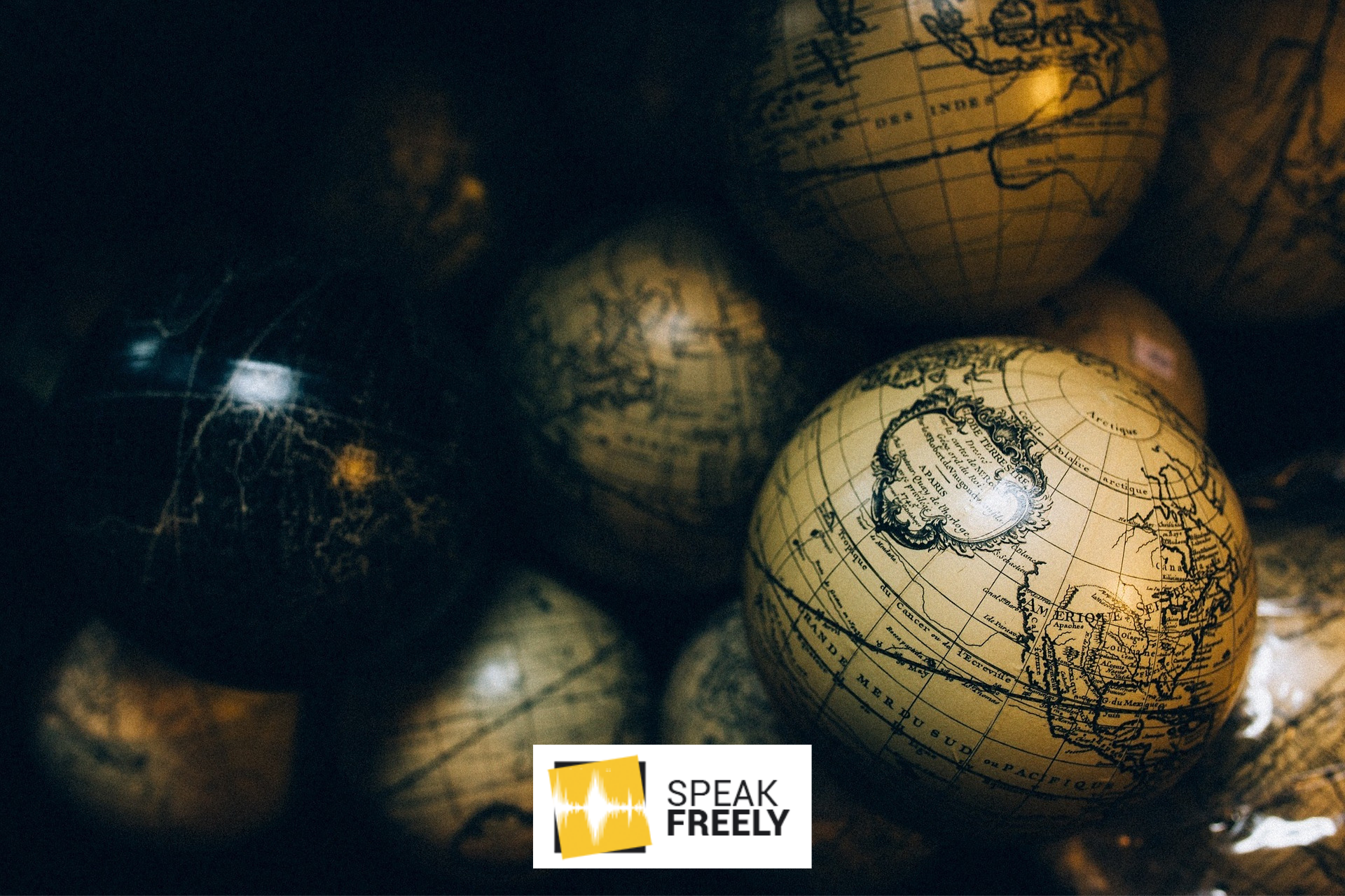I have to admit that sometimes it’s fun to watch conspiracy theory shows and documentaries on Netflix. However, the problem arises when those theories become the doctrine and affect political life.
This is what has happened with globalization and the whole myth behind it. The rejection of globalisation is now common to right and left wing politicians for different reasons; from president Trump who seemingly suggesting we lock up ‘’globalists’’, such as George Soros, to Bernie Sanders who believes that ‘’we need to fundamentally reject our “free trade” policies’’.
The myth of globalisation
One the one hand, there are those who focus more on the social aspect of globalisation and think of it as an ideology, an evil plan pushed by nebulous, powerful people, that will lead to the absence of national identity, mass immigration and some form of one-world government. That’s why they use the term globalism instead. As president Trump mentioned in his speech at the UN ‘’we reject the ideology of globalism and accept the doctrine of patriotism’’.
This narrative is also popular in Europe, with the prime minister of Hungary Viktor Orban naming George Soros as an enemy of his country, blaming him for sponsoring the reception of thousands of refugees into Europe. He has even passed anti-immigrant laws called ‘’Stop Soros’’. The refugees entering the country are not just considered a threat to national identity, but they are also blamed for ‘’stealing’’ jobs from the natives.
The left, however much they may stand for the immigrants targeted by anti-globalists, aren’t necessarily pro-globalisation by any means. In contrast, they oppose economic globalisation, calling it a ‘’neoliberal’’ policy, promoted this time by the greedy capitalists. Globalisation for them is beneficial only for the national elites and the private corporations; it leads to inequality and, like every capitalist policy, to the exploitation of the workers.
Both of these approaches, despite their different rationale, miss the point of globalisation entirely.
Globalisation is an outcome of freedom
Wikipedia defines globalisation as ‘’the process of interaction and integration among people, companies, and governments worldwide’’; in other words, globalisation is what happens when you let people be free to interact with other on a global scale.. It is a result of freedom, not political force. This is why it’s wrong to be considered as an ideology, rather than a simple process.
Conspiracy theories about George Soros or the new world order are, frankly, not even worth commenting upon. But what about those criticisms of globalisation that are more grounded in reality?
Criticism of economic globalisation often translates into criticism of free movement of goods, services, technologies and capital. Since 1990, when the resurgence of globalisation and the dominance of capitalism can be seen, ‘’more than a billion people have lifted themselves out of extreme poverty and the global poverty rate is now lower than it has ever been in recorded history’’, according to the World Bank.
More specifically; in 2015, 736 million people lived on less than $1.90 a day, down from 1.85 billion in 1990. Of course, there are still many problems to be solved, and this is why World Bank has set the goal of ending global poverty by 2030.
But even after this record breaking decline in poverty, some are still skeptical of the benefits of globalisation, because while millions of people may escape poverty, some are of the opinion that those who only benefit are the very rich, and that not everyone reaps the fruits of globalisation.
The paper of Branko Milanovic on global inequality offers a great explanation on the winners and losers of globalisation between 1988 and 2008.
‘’As the figure shows, it is indeed among the very top of the global income distribution and among the “emerging global middle class”, which includes more than a third of world population, that we find most significant increases in per capita income. (…) These two groups—the global top 1% and the middle classes of the emerging market economies— are indeed the main winners of globalization.
The only exception is the poorest 5% of the population whose real incomes have remained the same. It is this income increase at the bottom of the global pyramid that has allowed the proportion of what the World Bank calls the absolute poor (people whose per capita income is less than 1.25 PPP dollars per day) to go down from 44% to 23% over approximately the same 20 years.
But the biggest losers (other than the very poorest 5%), or at least the “non-winners,” of globalization were those between the 75th and 90th percentiles of the global income distribution whose real income gains were essentially nil.’’
The winners of globalisation are the global top 1% and the middle classes of the emerging market economies, which makes up more than two billion people. Although the poorest 5% of the population have seen their real incomes stay the same, the biggest loser is the global upper-middle class.
For someone who only perceives robber-barons and wealthy oppressors, and ignores the most productive people in society, these figures might seem meaningless. But you can’t ignore the lowest global poverty rate ever recorded, just because the rich are getting richer too.
Humans have lived most of their life in poverty. The question we have to ask ourselves is not what makes people poor, but what makes them rich. Only now, after thousands of years of horrible living conditions and unmovingly-slow growth, can we see millions escaping poverty under the globalized economy. It’s not a world of angels and saints, but it is by far the best we’ve ever had.
This piece solely expresses the opinion of the author and not necessarily the organisation as a whole. Students For Liberty is committed to facilitating a broad dialogue for liberty, representing a variety of opinions. If you’re a student interested in presenting your perspective on this blog, click here to submit a guest post!
Image: Pixabay
